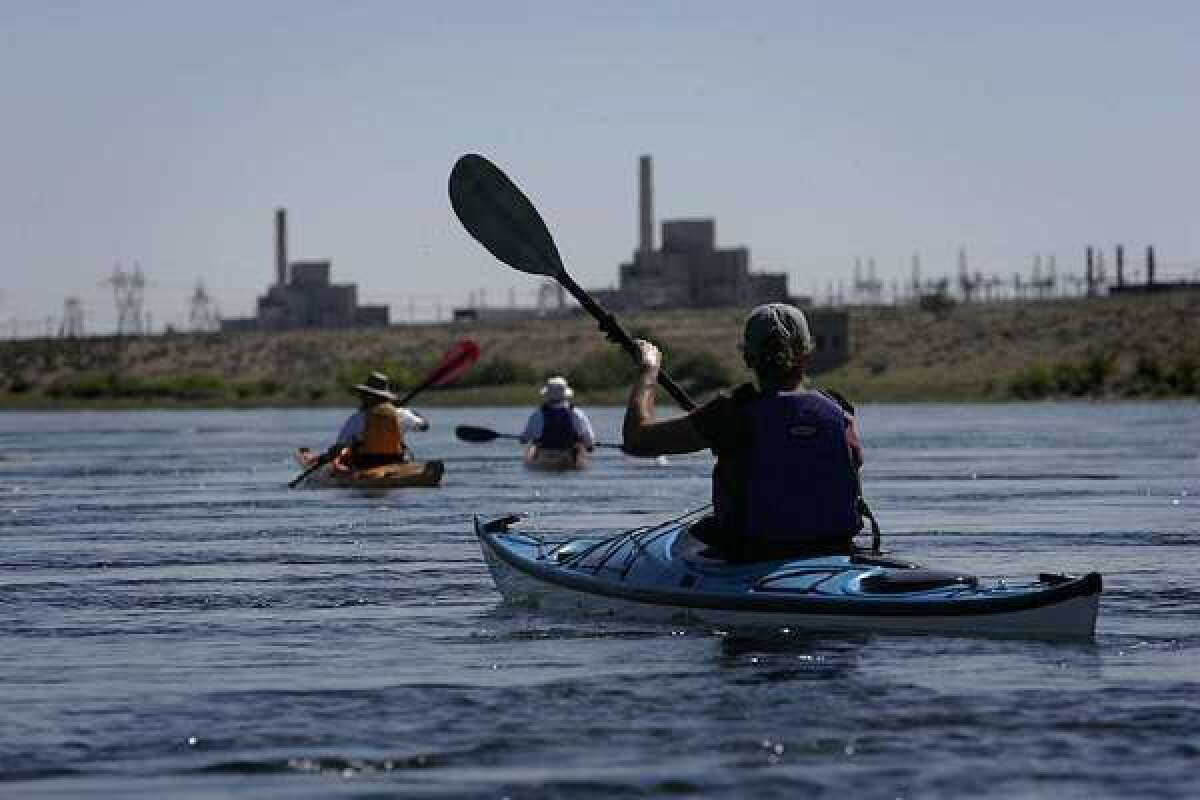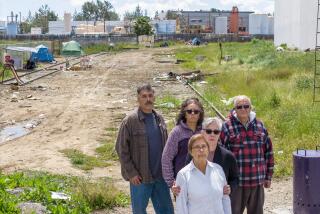Possible safety breaches at radioactive waste plant, files show

An investigation by the U.S. Energy Department has found that San Francisco engineering firm Bechtel may have committed a wide range of safety and health violations at a plant it is building to treat high-level radioactive waste at Hanford, Wash., according to agency documents obtained by the Los Angeles Times.
The Energy Department halted construction at the plant earlier this year in the wake of allegations that the treatment complex had fundamental design and construction flaws.
The Hanford plant is being built to treat an estimated 56 million gallons of radioactive waste created from about half a century of nuclear weapons production. The waste is stored in underground tanks. At least some of those tanks are leaking radioactive sludge, posing a threat to the nearby Columbia River and making the $12.3-billion treatment plant one of the most urgent environmental projects in the nation.
The investigation report, dated Nov. 13, found that Bechtel had failed to follow procedures, maintain safety margins, train workers and correct items that did not meet requirements, among other problems.
The lengthy report cited three broad problem areas: a concern over safety margins at the plant, corrosion of pipes and vessels, and underground pipe protections.
Until the investigation is closed, following an upcoming conference with Bechtel, the problems have been identified as potential.
Bechtel officials deny that serious problems exist at the plant and say the investigation report is an “interim step” in determining what may be wrong.
But the investigation clearly adds weight to concerns voiced earlier by scientists about the design of a highly sophisticated mixing and filtering system, which would condense radioactive waste so it can be cast into solid glass for long-term storage.
Bechtel failed to follow proper procedures and standards in designing the innovative mixing system, the report said. It also “failed to correct, in a timely manner, known problems with the safety designation and fire protection functionality” of the mixing vessels.
The Energy Department stopped construction at the plant’s two main complexes after concerns grew that the mixing system could allow explosive hydrogen gas to accumulate or even allow radioactive waste to spontaneously undergo fission and release energy.
The problems with the systems were first highlighted last year by the manager of a team of scientists at the project, Walter Tamosaitis.
In August, a top Energy Department engineering official at the plant, Gary Brunson, issued a stinging memorandum to officials in Washington, documenting what he said were 34 instances of Bechtel providing factually incorrect information, flawed design solutions and equipment that did not meet safety requirements. Brunson recommended that Bechtel be relieved of design authority.
Hanford Challenge, a watchdog group in Seattle that has played a key role in disclosing many of the problems at the waste treatment plant, characterized the new findings as “very serious.”
“It is the latest vote of no confidence,” said Tom Carpenter, the group’s executive director.
In a letter to Bechtel officials, the Energy Department said it would schedule an “enforcement conference” to discuss the findings and a possible civil fine.
An Energy Department spokesman said the report was an “initial internal investigation” on Bechtel’s compliance with federal safety rules, “just one step in a robust enforcement process.”
Bechtel officials said the upcoming meeting with the Energy Department is an important step that “will bring factual clarity and clear actions toward issue resolution. Until that conference takes place, the process is incomplete.” The company also denied that the investigation is related to construction stoppages.
An email last week to senior Energy Department officials from Bechtel executive Frank Russo, which was obtained by the Los Angeles Times, laid some of the blame for the problems on the government.
Russo cited “a lack of clear scope and a lack of clear requirements” in the construction project.
He added, “We are working to address all the issues within our control and we fully recognize that we have work to do. However, unless we are both willing to address all the issues, the underlying problem will remain.”
More to Read
Start your day right
Sign up for Essential California for news, features and recommendations from the L.A. Times and beyond in your inbox six days a week.
You may occasionally receive promotional content from the Los Angeles Times.







